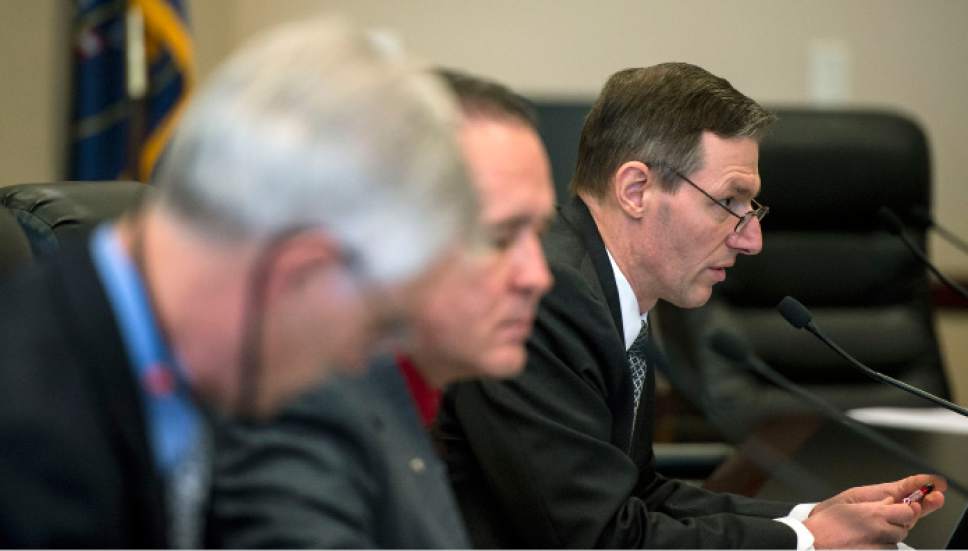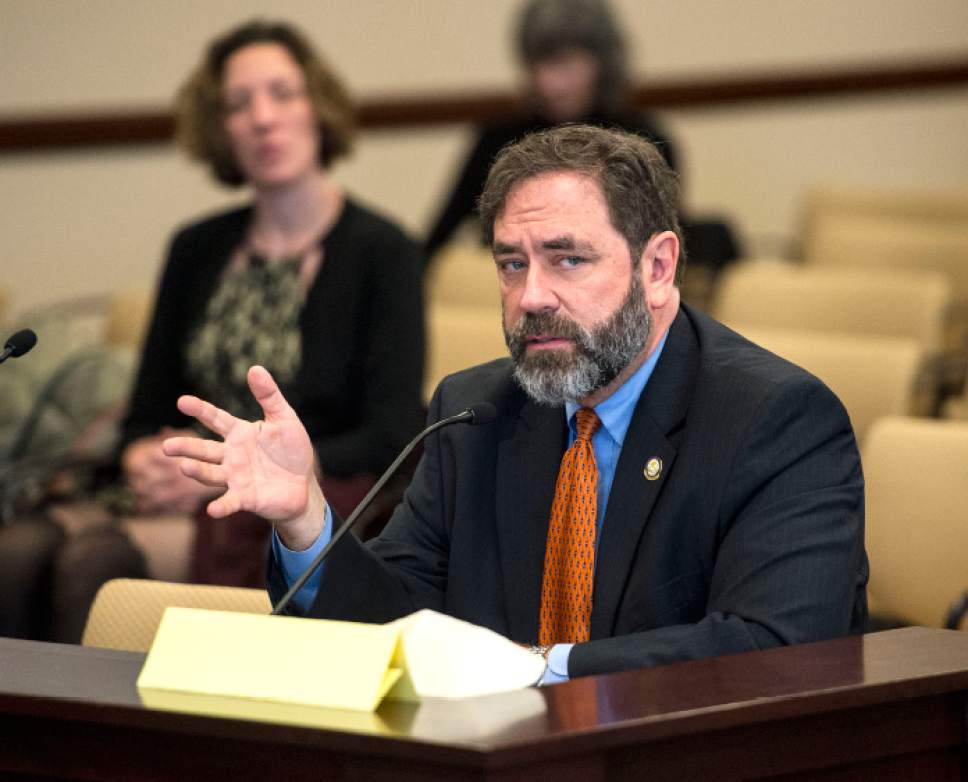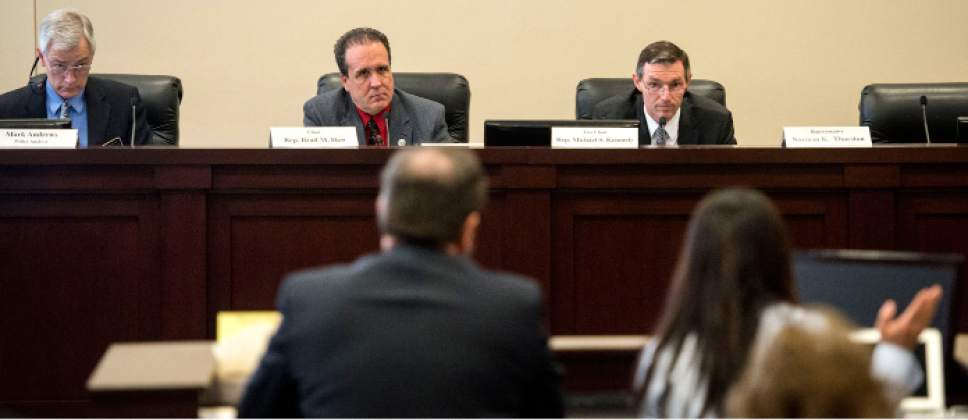This is an archived article that was published on sltrib.com in 2017, and information in the article may be outdated. It is provided only for personal research purposes and may not be reprinted.
A move stalled Thursday seeking to remove a Utah rule that may make obtaining an abortion more difficult — after the U.S. Supreme Court ruled last year that a nearly identical Texas law is unconstitutional.
HB384 would erase an administrative state rule requiring that a provider have admitting privileges at a hospital within 15 minutes of the clinic or office where he or she performs abortions — to facilitate transfers in emergencies.
Last year, the Supreme Court struck down a similar Texas law that required abortion providers to have privileges at a hospital within 30 minutes of their offices, saying it was an unconstitutional obstacle to abortion.
The House Heath and Human Services Committee adjourned without a vote Thursday on HB384. A motion to pass it was pending, but members voted to adjourn instead because the full House was about to convene.
House Minority Leader Brian King, D-Salt Lake City, said his bill is not dead. "I'm optimistic that we can address concerns" and pass it, he said, after several anti-abortion groups opposed the measure.
King said it makes sense to erase the Utah provision because it is so similar to what was struck down in Texas. Otherwise, he said the state would almost surely be sued by the American Civil Liberties Union — to which King belongs — or a similar group, would lose and then be ordered to pay for attorney fees.
He painted the bill not as about abortion, but about the state avoiding sure-to-lose litigation and related costs.
Leah Torres, an OB-GYN who performs abortions, said the state does not have similar rules for admitting privileges for other types of doctors who perform surgery in their offices or at clinics — including birthing centers. It has that rule just for abortion providers.
She adds that the complication rate for abortions is far less than 1 percent, while 20 percent of pregnant women will miscarry with potential serious bleeding or other complications. "Yet we don't require people of reproductive age to live within 15 [minutes] of a hospital" for their safety, she said.
Deanna Holland, vice president of Pro-Life Utah, said the Utah rule actually may not create an undue burden for abortion in Utah.
She said the Texas law that was struck down "actually shut down many of their abortion clinics," which is what created the undue burden on abortion access there.
Holland said the Utah law has been in effect since 1998. "This rule has not prevented women from accessing abortion. It did not close any clinics. It did not even change the average number of abortions performed annually."
She added, "This has not placed an undue burden on Utah women. This rule is a protection. It provides a safety net that they get good care should an emergency arise, and that their doctor is in good enough standing to be accepted at the local hospital."







